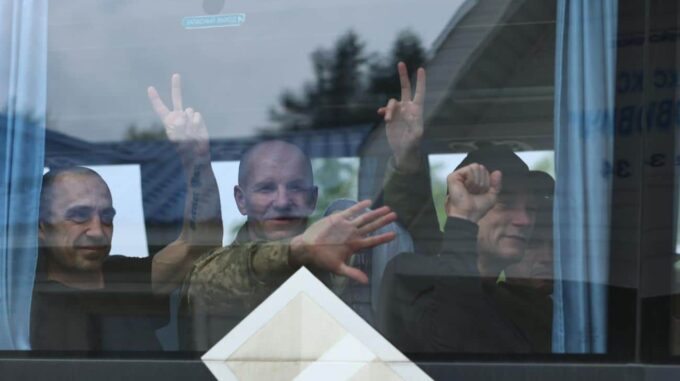Ukrainian writer and former prisoner Stanislav Asseyev released important and concerning information about the condition of Ukrainian civilians held in Russian captivity for over eight years

According to him, during the final stage of the large-scale exchange of prisoners in the "1000 for 1000" format, none of the released individuals were civilians who had been in captivity in Russia all these years. This has caused genuine alarm, as more than eight years Ukrainians remain hostages of the enemy without prospects for release, while official procedures and diplomatic efforts have yet to yield results. Asseyev shared this information on his Facebook page, noting that he had transmitted a list of prisoners to President Volodymyr Zelensky approximately more than a year earlier. However, it appears that this list has not yet produced any results — no corresponding releases have occurred, and many of those who fell into Russian captivity continue to live in uncertainty about their future. According to Asseyev, most civilians are held in Strict Regime Colony No. 32 in Makiivka, which Russian occupiers use as one of the main detention points for Ukrainian hostages. They were transferred there after being released from "Izolyatsiya" and other pre-trial detention centers. A particularly sad story is that of those who helped Ukraine during the active fighting on the Donbas, most of whom were indifferent to the situation unfolding there. In Asseyev’s opinion, this adds another layer of pain and injustice to this tragedy. He emphasizes that the length of captivity is an important criterion, and although comparing the suffering of different hostages is not straightforward, the fact remains: these people have been in captivity much longer than many others. Asseyev himself underscores that the state must pay special attention to these long-term prisoners, because their suffering is no less significant and this issue cannot be ignored. Moreover, he does not hide his beliefs regarding the value these people hold for the Russian authorities. According to him, for the Kremlin and the Russian regime, these individuals are "nothing." They are held in Zone 32 as so-called hostages, who, from Russia’s perspective, have no particular importance. This raises questions about how Russia regards its own citizens and civilians who find themselves in captivity. "These people — for Russia, they are nobody. So the important question is — do they have any value to their own country, Ukraine?" Asseyev points out. Historical developments show that on May 25, Ukraine and Russia again conducted their third prisoner exchange in the "1000 for 1000" format. As a result of the agreements, another 303 Ukrainian defenders returned home, marking a significant event. However, among the released was not a single "Azovstal" fighter — soldiers of the Azov Regiment who had been in Russian captivity for a long time. Colonel Denys "Redis" Prokopenko, commander of the Azov Brigade, expressed concern about this fact, emphasizing that, in his opinion, the authorities do not show enough desire and effort to bring these heroes home. He insists that their return is extremely important for Ukraine, as these fighters actively defended the country during the most difficult times and deserve special attention and support. Overall, the situation with Ukrainian hostages, especially civilians held in captivity for over 8 years, remains unresolved and causes strong outrage and concern among the public. The decision to bring these people home, ensure their safety, and uphold their dignity sets seemingly unattainable goals but actively encourages the efforts of the Ukrainian government and the international community to find ways to save Ukrainian citizens and bring them back to their homeland.

